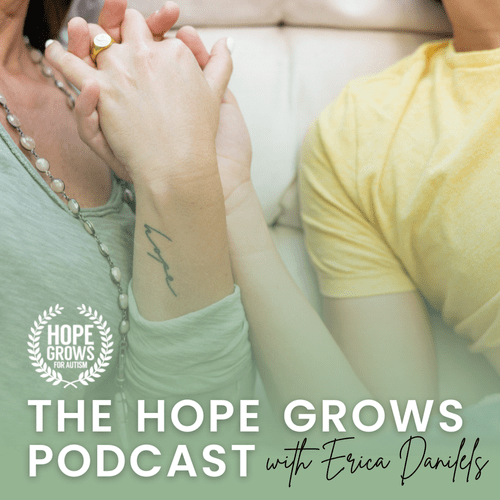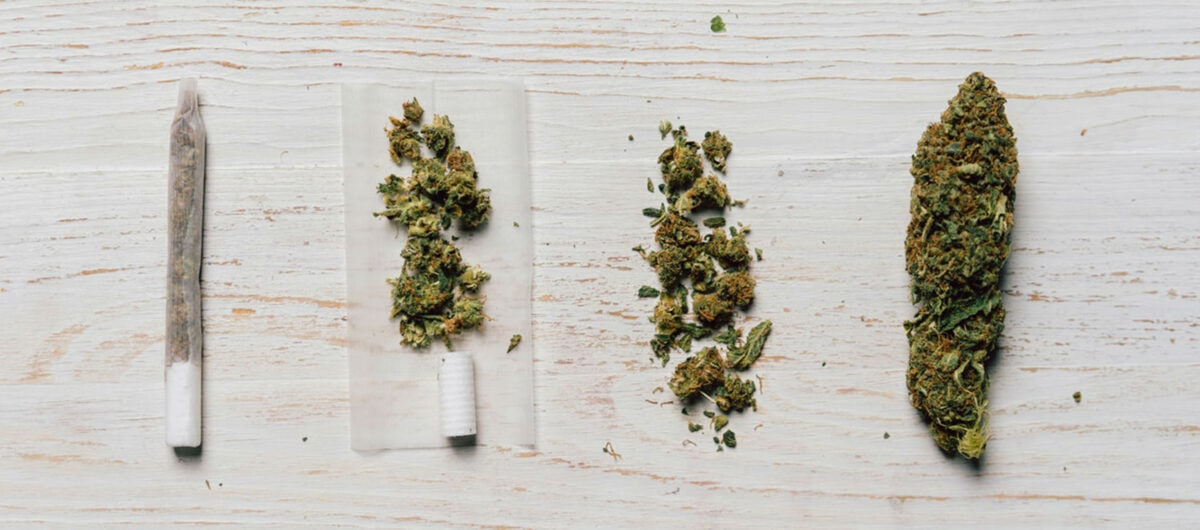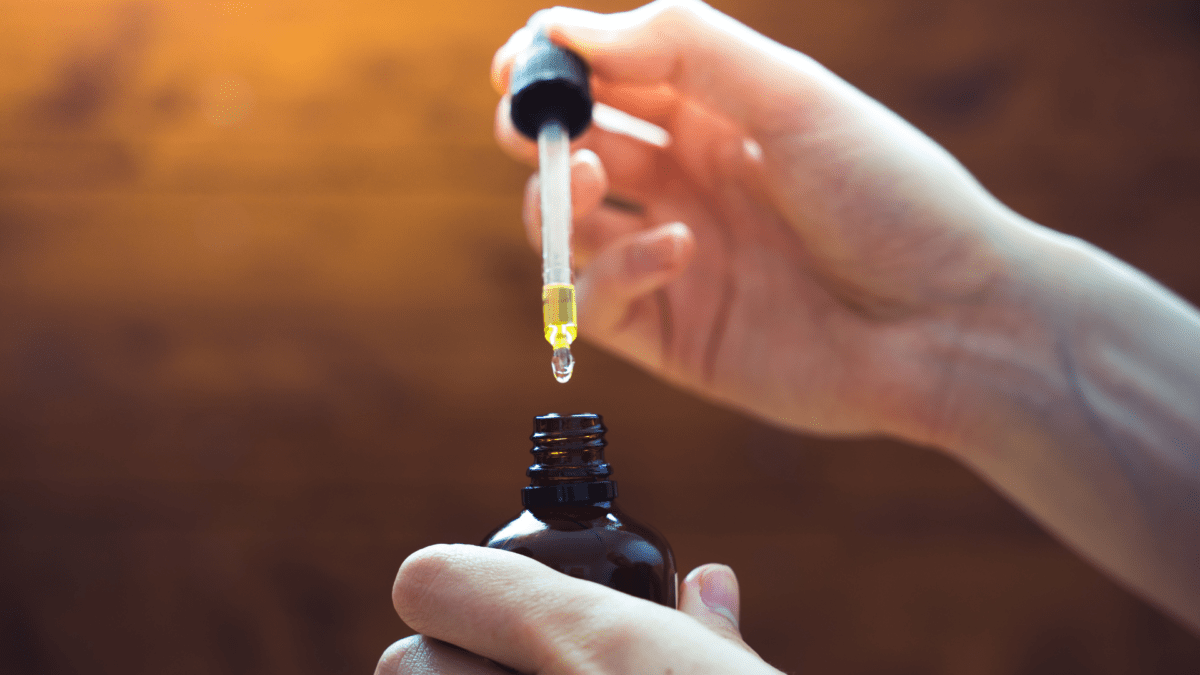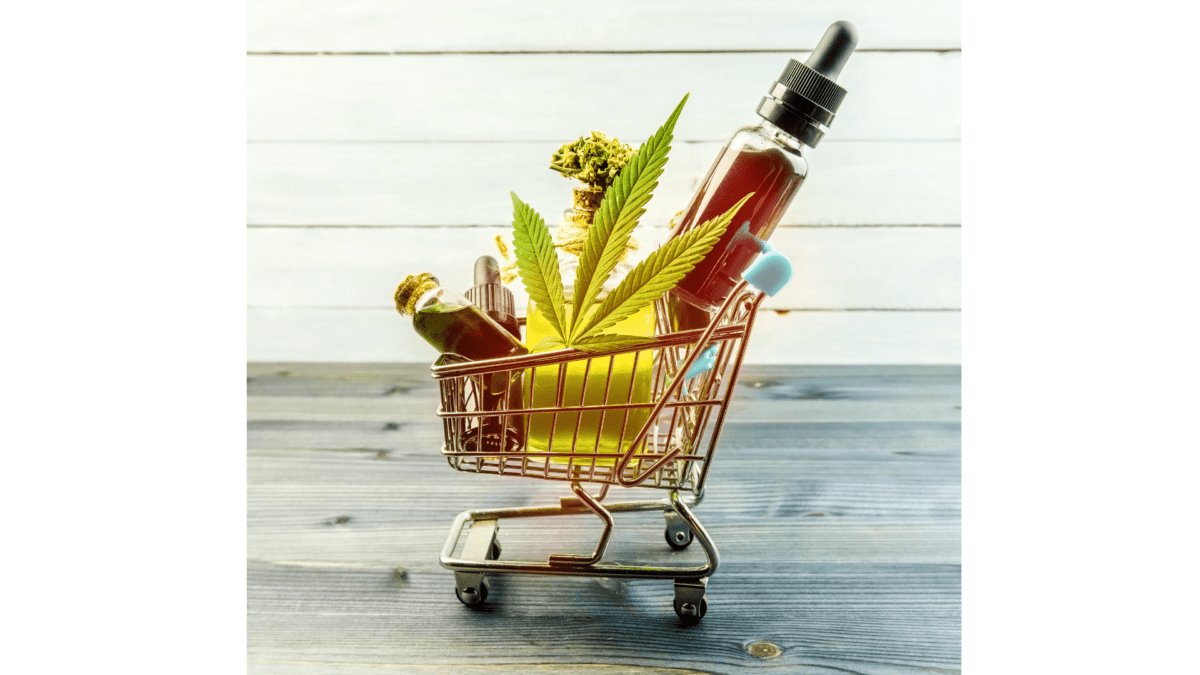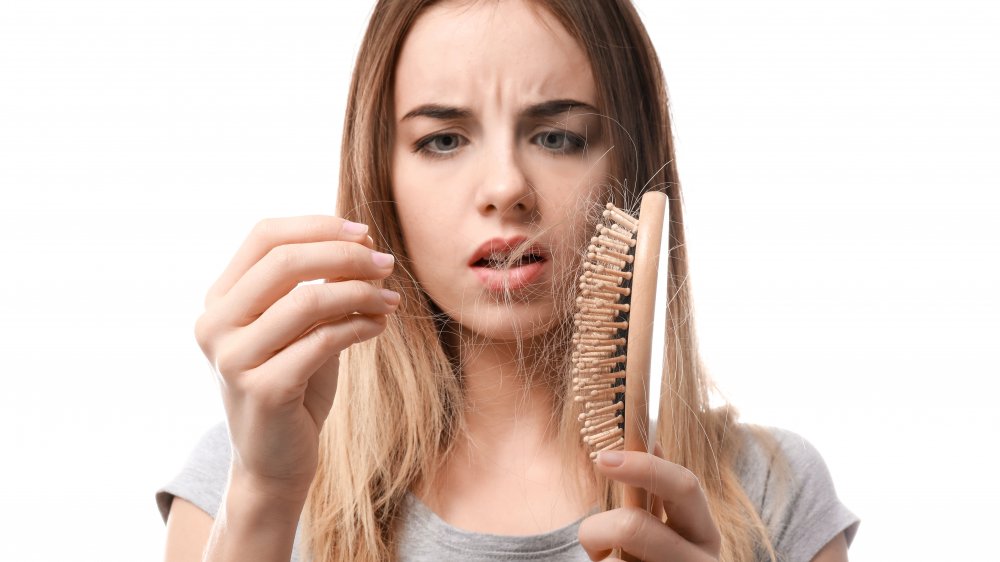Did you ever wonder if all families living with autism are pioneers? Forging a unique and sometimes challenging journey into each simple every day of life? Join Erica Daniels mother of a teenager living with autism as she explores conversations with those pioneering the unpredictable work, lives, and journeys of people making a difference for families meeting the everyday challenge of living with autism.
Erica Daniels: I want to give a warm welcome to today’s guest, Heather Jackson, founder and board president of Realm of Caring and Unlimited Sciences. Heather is an international speaker, author and published researcher. Her mission is to reimagine the way we think, talk, and respond to plant medicine and the people who use it. Her work with Realm of Caring Foundation and Unlimited Sciences has been featured on Dateline, CNN with Dr. Sanjay Gupta, New York Times, Time, Good Housekeeping.
Welcome Heather, it is an honor and a pleasure to have you hear today on Hope Grows – The Podcast.
Heather Jackson: Thank you Erica, I’m so happy to be here.
ED: Thank you. So, when I was doing a little research to prepare for our discussion today, I came across something that you had written and I think it’s really beautiful. You had written about your son and your journey and I’m hoping you’d be willing to share that with us today.
HJ: Absolutely, I’d love to do that.
Once upon a time, there was a beautiful boy who wasn’t doing so great
He was receiving hospice palliative services
Then along came a couple of brothers and a plant, a beautiful magical plant that saved her boy, and he grew up.
His momma started a nonprofit to help people just like her boy and it grew up too.
So the momma found an amazing new fearless leader to take Realm of Caring into the future.
ED: That’s really beautiful, thank you so much for sharing that. I’d really love to focus today on your work at Unlimited Sciences. In your own words can you share about your family, your son, your journey, how this all began and where that took you and where you are today.
HJ: Absolutely. Thank you, and I’m so glad that you had a chance to interview Sasha and that audience will learn a little more about Realm of Caring.
ED: And by the way you found a fabulous leader in her. The thing I love the most about her is her overlap between Autism and cannabis because I have that overlap and there’s not a lot of people out there so her and I have that overlap thing in common so we can connect in that way, it was great talking to her.
HJ: Yea and I’ve always said that being able to access these plants and natural solutions is a human right and with her human rights background, she’s fantastic and I’m so thankful to her and her leadership.
ED: Tell me about your family, tell me about Zaki, your journey.
HJ: I would love to do that. So I’m married to my high school sweetheart. We’ve been together for 31 years, we have a 25 year old and we also have a 19 year old. Our 19 year old has a really rare, there’s maybe 75 kids with his diagnosis, it’s a genetic condition which is new. It’s new to us. We always knew that he had seizures, developmental delays, and autism but we did a new panel of genetic testing and we found what’s called POBINDS. And so Zaki has had seizures since he was four months, and they were daily seizures, they were very severe, six different seizure types. We had been through 17 pharmaceuticals and we were to a place where we had a hospital admission and we were having an EEG done and his neurologist, who did everything he could in his bag of tricks, he tried, and Zaki’s EEG – just the electrical scan of the brain waves – was showing that he was having seizure activity every 10 seconds. And so even when we weren’t seeing a clinical seizure, his brain was seizing. And having exhausted all of the traditional medical options, we talked about transitioning him to receiving palliative services with hospice and we really made that decision. We signed a “do not resuscitate” order…
ED: I’m getting chills right now when you’re talking about this. I can’t imagine what this was like. Not just for him, but for your whole family.
HJ: It was the worst of the worst. And it also, the other side of that coin, and there’s always both sides, was that it brought – and it can do a couple of things to a family – but it brought us really, really close together and it made us really focus on life. You know we can go through life and get super busy just being busy and disassociated and not in our body and not present, and that really changed us. And there are times when I get back in that space and get pulled in that space and I just remember the pearl and we’re just so, so damn blessed and lucky to be here.
And our hospice counselor is actually the one who said “hey, I might lose my job for telling you this, but I can’t not say something”. Now remember this was a long time ago, before this was a thing.
ED: Yea, people are talking about cannabis now, but then it was a very different story.
HJ: Very different.
ED: And bravo to your counselor for being brave and sharing that information.
HJ: Yea, she slid some numbers across the table and we started using cannabidiol (CBD) and it was through our medical cannabis program at the time. It wasn’t hemp.
ED: I want to clarify for people who don’t know – so that means you’re going to a dispensary and you’re buying a cannabis and not a hemp-based product. There’s a lot of confusion.
HJ: Back then, the ability to grow hemp like we are now, that was one of the things we helped establish with Realm of Caring and help push forward. It was all medical cannabis, there was no hemp growing in a field like corn. That was not a thing. And so we had to access it through the medical cannabis program even though legally, technically, it was hemp. There was no mechanism to shop for it that way. We’d go to dispensaries and that was where we’d pick up, for us, what was my son’s medicine. And within 3 months his condition remitted. And I was very familiar, I’m the mom that tracked everything. Everything he ate, every seizure, I mean everything. I was just that very data-centric mom.
ED: I’m like that too, I get it.
HJ: Yea I would come with graphs and be like “look doc!”
ED: Well you kind of have to when you get in that gray area, especially back at that time, you need to do that to protect your family.
HJ: And also, I always just wondered. I have one patient, my doctor has however many – hundreds, maybe thousands, who knows. Maybe I can find a connection here somewhere. I’ve always been fascinated and really led his treatment through the data. I’ve just always been like that and that really helped us with Realm of Caring and having that mindset.
After his condition remitted, I just couldn’t not help people. I couldn’t not tell everybody that, you know, no matter how you felt about the plant – and cannabis comes with a lot of baggage, especially 12 years ago, that it’s an option. You may not like it, but I’m going to tell my story. We’re going to tell our story. And more families came along. We started the Realm of Caring Foundation, in the end we helped families – at that time – relocate, because it was medical cannabis and they needed to get to a state where they could access it. We started collecting a lot of data and we did that first, what now I know is qualitative research. A lot of interviews, Excel spreadsheets, I hired a database company, and then we grew to start our study with Johns Hopkins that we still maintain to this day. I’m sure that Sasha talked a lot about that. And that was the beginning of Realm of Caring. And we’ve had a really prominent, and important role and we stand on the shoulders of all of the families. Like yourself, like myself, like our friends who have no ulterior motives. We were just trying to save our kids, that’s it. That’s all we were trying to do. And then we had friends in other states who couldn’t access this and their zip code dictated whether they could help their child, it was asinine. And so we started going state by state, I think it was 22 states we passed cannabis legislation, we worked on federal legislation. We made sure that the hemp bill went through with the Farm Bill – that kind of stuff. And then I decided that I wanted to find, I don’t do anything for more than 7-10 years, I try to reinvent myself ever so often…
ED: I get it, you have to just sort of, it’s part of life, creating new things…
HJ: One-hundred percent, and I get a zing out of something new. There’s something in me, one of my values is pioneerism and progress. I like to be on the forefront, I like to be doing things that are new. So, yes I’ve got someone for day-to-day operations and am still the board president but back in December of 2018 we started Unlimited Sciences.
ED: Tell me about Unlimited Sciences, because I really want to get into that today because that’s something I’m super interested in also.
HJ: Yes, I had, again this came from personal experience, I wasn’t doing well. My son’s seizures actually returned after almost four years of remission and I had a good old fashioned breakdown. I mean there’s no other way to put it. I was having severe physical symptoms that were sort of mimicking multiple sclerosis, I was getting EEG’s and MRI’s and I had no strength in my hands. I would have my blinker, I’m getting off the highway to the right for example, and my blinkers on to the left. I just had a good old fashion breakdown.
ED: I want to ask you a little more about that before you go further into Unlimited Sciences because I’m fortunate – so my son Leo is 18. Our kids are around the same age, he’ll be 18 in March, which is a whole slew of new things which you know. I’ve always felt fortunate that he does not have seizures, and I can’t and won’t ever say to you or any other parent that I understand, because I completely don’t. I’ve heard enough to know from families who do experience that, it’s just a whole other level of post traumatic stress disorder and other things like you’re describing.
Leo had an incident before the end of the year when he was at work, and a good friend of mine runs the coffee shop that he works at, and she’s a nurse practitioner. And so, I got a call and I answered the phone and the first thing she said to me was Leo had a seizure. And I started screaming, Heather. What you’re describing of the breakdown, I started screaming, I didn’t know what to do, I don’t even know how I made it over there to drive over there. It turns out they don’t think it was a seizure, but from that one blip of just an hour maybe where I thought that was going to be our path from now on, I can’t imagine what that feels like for you and from your telling me what that does to your health as a mother.
HJ: It’s so intense. And it’s complex trauma. There’s never a post, you never know when it’s going to happen. And I do think that with time I dealt with it better. So having that period of not having seizures, my nervous system really began to heal. When they came back, and I was always calm, cool, collected – a seizure would happen I would note the time, I would say to Zarek – his older brother – please go get the emergency meds, just like calm, cool, and collected. Talking very calmly to him. I was in a state of I’m shaking, I’m sweating, my heart is racing, I can’t think clearly. The cool cucumber is now a pickle.
ED: Right, well your body probably learned over time how to respond to that and so you were able to treat it like a medical business emergency where you’re the doctor, nurse, mother, everyone going on and you’re managing the situation. And then you were likely triggered when all of that stuff came up, I’m sure.
HJ: One-hundred percent, I was really lucky. I was able to take a sabbatical from work, I was able to really dive into Chinese medicine, acupuncture, I had a therapist, I was doing a lot of semantic work, body work, energy work, that really helped me to pull out of that. Mind you, the medical, including psychedelics – and I want to talk a little about that, but the medical model I remember sitting, getting an EEG, and the lady is talking to me like I had not done a hundred of these with my son, these leads and wires…
ED: Like you’re some rookie
HJ: I was sitting there going oh my god, they actually said “well, maybe it’s migraines” and they wanted to give me a prescription for Topamax, which we call “dopamax” when we give it to our kiddo.
ED: Fair enough!
HJ: Which totally takes his speech, because his development speech was totally absent. It was the same feeling of you have no idea what you’re doing. And the fact that you’ve got to put down some kind of DSN code that you’ve got to see me – I’m not doing that. I’m just not going to do that. I’ve always been a very avid researcher, it’s always how I’ve stayed sane, so I just started looking for the research – what were natural solutions for what I was experiencing – and I did come across psychedelics. And I’d never used psychedelics before, just like with cannabis, I was a byproduct of 80’s “this is your brain on drugs”, you know?
ED: Totally.
HJ: This is like egg in the frying pan, big hurdle.
ED: I just gave a presentation and that was my first slide when I talked to everyone about cannabis, like cannabis is medicine, but this is your brain on drugs. Everyone in our age range remembers that for sure.
HJ: That’s the era! And the D.A.R.E program – All that kind of stuff. And so, however, I was very, very serious about taking my health into my own hands. So I curated a psilocybin experience, you know magic mushrooms.
ED: So what brought you to that?
HJ: Just research, research online, I am absolutely not going to pick up a prescription. I knew what was happening was based on what was going on with Zaki and that the seizures were back and that the life I thought we were going to have is not there and immense grief.
ED: And he also has an Autism diagnosis, right?
HJ: He does, yes Zaki has an Autism diagnosis and his Autism was very severe prior to lots and lots of therapy and cannabis. He was the kid under the table with his fingers in his ears screaming, biting, clearing shelves. Your audience will know, the brushing program and the weighted vest…
ED: I forgot about that, we did all of that.
HJ: Yes, ABA therapy, all of the things to try and help him – sign language actually helped a ton because he had like one hundred signs before his first word. But yes, very severe autism, so it’s both. And I don’t know it’s like a chicken and egg thing – did all the seizures and medications cause it? I don’t know.
ED: And it’s so hard because they can’t tell you how they’re feeling. You know? So I go with the E.T. and Elliott model with Leo and I, it’s like we vibe off each other. I try to feel how he’s feeling. But there’s the I’m okay, you’re okay philosophy that I subscribe to. I have to make sure I’m okay because when I’m not okay, he’s not okay, and it sounds like that was going on with you and there was a lot between the both of you going on.
HJ: That’s exactly where I was.
ED: Psilocybin, what people think of as mushrooms, or magic mushrooms, which you have access to in states like Colorado. And I’m in Pennsylvania so we don’t have any kind of access.
HJ: Yes, we have access here. So I found a sober sitter, someone who would be with me while I went through this experience. And I took a dose that was equivalent to what Johns Hopkins research said would give me a mystical experience, and that’s how I work. Reminder I’m the mom that tracked every time my kid pooped. So I got a little bit of data.
ED: You did your research, you knew what you were doing, I’m sure you had proper set and setting and everything.
HJ: Yes, I was in the forest and I just describe my life as before and after that experience. It just helped me to create meaning from what we were going through and what he had gone through. And helped me to not have shame and regret about, you know those four years he was seizure free I worked my butt off from 6 am to midnight most days and I just was like and now it’s gone and I was really regretting that and I had a lot of shame around that and one of the things that it really helped me with – you know as a parent, there’s just one job – protect your kid. And when you can’t do that, you’re uncomfortable in your own skin.
ED: It’s so unsettling.
HJ: You’re walking around with, whatever, 250 pound sandbags on your shoulders and it helped me to sort of get in the right relationship with myself and have reasonable expectations of myself.
Listen to the rest of Heather’s interview to learn more about her experience, Unlimited Sciences, and caring for caregivers here!



